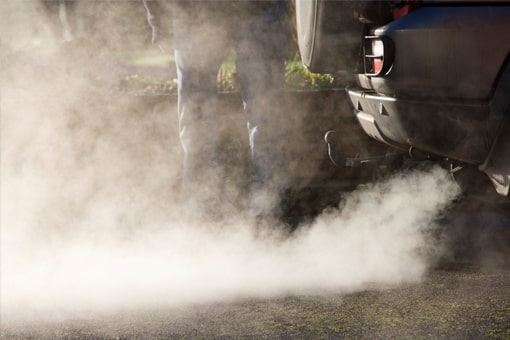
BMW DIESEL EMISSIONS SCANDAL
We are bringing a claim against BMW on behalf of customers who bought, financed, leased or owned new and used BMW vehicles between 2009 and 2016. Please note that we are no longer taking new claims – if you have already joined our claim, thank you.
Take action now – all of our clients will have received a survey about your claim against BMW from us – please check your emails including junk/spam folders. Please complete this survey, it is an important step in the litigation.
Don’t put off completing the survey – act now!
About the claim
Around 500,000 BMW drivers could be due compensation because we believe BMW installed special software (known as a ‘defeat device’) in certain Diesel vehicles to cheat emissions tests. If we are right, BMW owners were mis-sold cars that are more polluting than the law allows and worth less than the cost they paid.
Drivers were sold a combination of environmental impact and driving performance that was a fiction. Unable to meet international emissions standards, these cars should never have been allowed on the road.
BMW is one of the latest companies that are accused of using ‘defeat devices’ similar to the ones used by Volkswagen in the Dieselgate scandal. If you’ve been affected, we believe you deserve compensation.
Are you eligible?
Please note we are no longer taking on any new claims. People who purchased, financed, leased, or owned a Diesel BMW (new or used) between 1 January 2009 and 31 July 2016 are included in our group claim and who may be eligible for thousands of pounds in compensation.

We believe BMW cheated the emissions tests and failed their customers. They knew what the emissions rules were, and they developed software to get around them. It is time to hold them to account

It costs absolutely nothing to take part in the BMW Pay Up campaign

Our BMW claim is being managed by an exceptional team of top litigators in London

If successful, each driver could be owed thousands in compensation
What exactly did BMW do, and how did it harm their customers?
We believe that BMW installed ‘defeat devices’ in certain Diesel cars designed to reduce emissions levels in a regulatory test environment. The practical effect of a defeat device is that the car can detect when it is in a test environment (because the tests have standard conditions which the defeat device is designed to identify) and tell the engine to reduce the pollutants it is producing in order to pass that test. In doing so, the performance of the car is also reduced.
When the car is in normal driving conditions (i.e., most if not all of the time), it maintains optimal performance, and as a result the vehicle pumps out unlawful levels of NOx and other pollutants without the driver realising. Without passing these tests, the cars would not have been cleared to drive on UK roads and they do not meet the environmental and performance standards promised in the glove compartment handbook.
We believe that these affected vehicles pumped more harmful NOx into the atmosphere than the law allows. Public Health England estimates that NOx is a ‘major component’ of urban air pollution generally, causing up to 36,000 premature deaths per year.
Drivers were sold a combination of environmental impact and driving performance that was a fiction – it could never happen under normal driving conditions.
The defeat devices used by BMW are different in their details to what Volkswagen used in the Dieselgate scandal but the effect (and we say, clearly the intention) was broadly the same. The VW Group has now paid out hundreds of millions of pounds in settlements in the UK, in the VW NOx Emissions Group Litigation, US, Germany and Australia.
About the GLO process
‘GLO’ stands for Group Litigation Order. The claim against BMW is being brought by way of a GLO.
The campaign is no win, no fee, so if we do not win in Court, you pay absolutely nothing (as we have insurance to cover any adverse costs)”
You and the other Claimants are being represented by Milberg London LLP, a global law firm that has vast experience in handling similar claims.
If the legal claim is successful, we guarantee that you will receive at least 50% of the damages awarded to you in compensation. Our legal costs will be paid from the remaining 50% of the damages.
Why Milberg?
Milberg London and its partners are ranked in London’s top legal directories; Chambers and Partners and The Legal500.
The Milberg London team has a long track record of fighting tirelessly for the underdog and using every available legal option to hold wrongdoing corporations to account.
We are at the forefront of group action law and practice and instructed in some of the most significant multiparty cases ever to be heard before the Courts in this jurisdiction. Uniquely in the legal market, we have in-house scientific expertise such that we are leading the expert evidence in relation to several Dieselgate group actions, including against Vauxhall and Mercedes.
Our market-leading legal team regularly goes toe to toe with major corporate defendants and their immense war chests. We make them take our claims seriously.
We can back this up with our commercial pedigree having been forged in the biggest cases at the biggest firms, as well as having one of the UK’s largest client onboarding centres for fast and efficient engagement of new clients, and the support of existing clients. But more importantly, the Milberg London team care about promoting access to justice and work hard to minimise the hassle and stress of the legal process for their clients.
You can find out more about Milberg London by visiting their website here.
Meet your legal team
Our claim was settled quickly and efficiently and the staff were extremely courteous.
Angela Morris
I can’t thank you enough, I never in 1 million years. Thought I would get this payment to the point. I ignored the emails and text messages until I was left a voicemail and I realized it was all good, so thank you for helping me…
Customer
Really professional company! Did exactly as they said they would! Great outcome Thank you very much.
Julie
Great customer support. Answering any questions promptly. Very helpful. Highly recommended.
Marie & Jason Uttley
…Great service, especially Caitlin and Hendrick. I felt as if they were really keen to make sure I got the winning payment. Bravo, Milberg.
Nic
I got in touch with Milberg through a friend. They helped me with a delayed payment from an employer. They were very professional and kept me informed throughout the process. My experience with their service was excellent. I will contact them again if I require legal advice.
Sally
Good service and kept up to date.
Paul Neil
Excellent in customer relations in assisting me to understand the method of claiming against being miss sold an imperfect product with emission standards not comparable to British values.
Thomas Newell
Really efficient good communication. Always aware of what stage we are up to. Helpful and friendly staff who actually answer the phone.
Mr & Mrs Lyons
Outstanding service.
Wayne Barnett
So far this company's dealings with me have been entirely professional and honest. I understand these things take a long time and much information is needed, which I've provided as promptly as possible. No negative experience at all, don't understand where other negative reviews are coming from?
Richard Taylor
We believe BMW installed defeat devices in certain Diesel cars that were designed to reduce emissions levels in a regulatory test environment. Without passing these tests, the cars would not have been cleared to drive on UK roads. Put simply, we believe BMW cheated the emissions tests. The software appears to have identified when the engine was operating under regulatory test conditions and reduced the levels of pollutants being pumped out so it passed the test. But this kind of environmental performance could never be replicated under real life driving conditions. The defeat devices used by BMW are different in their details to what Volkswagen used in the Dieselgate scandal but the effect (and we say, clearly the intention) was broadly the same.
Not directly. We believe all car manufacturers installed defeat devices differently so the technical case against BMW will be different. However, broadly speaking, we believe the settlement is a positive development for all emissions cases in this jurisdiction.
A defeat device is any element of design, software or hardware in a car which detects different vehicle conditions (e.g. temperature, vehicle speed, engine speed etc) and adjusts or disables the car’s emission control system. In the case of BMW (and VW, Mercedes and Vauxhall) the manufacturers appear to have written software into the computer unit that controls the engine.
The practical effect of a defeat device is that it can detect when it is in a test environment (because the tests have standard conditions which the defeat device can be designed to identify) and tell the engine it needs to reduce the emissions it is producing in order to pass that test.
By contrast, when the car is outside of a test environment (i.e., most if not all of the time), it recognises that and the vehicle pumps out unlawful levels of NOx and other pollutants without the driver realising.
The reason for using a defeat device appears to have been that the engines in question could not meet the emissions test and produce an acceptable consumer driving experience.
Assuming the claim succeeds, drivers that purchased, financed or leased a new or used Diesel BMW between 2009 and 2016 did so on a false premise and may be able to receive compensation.
These consumers had a reasonable expectation their car would meet certain environmental and performance standards. That’s what they were promised in the glove compartment handbook.
The reality was that the cars were far more polluting than drivers were told. They pumped more harmful substances like NOx into the atmosphere, which are known to cause thousands of premature deaths a year in the UK – academic research has also established that long-term exposure to air pollution increases the risk of serious infection and death from COVID 19. Unable to meet international emissions standards, these cars should never have been on the road.
The cars would also be worth less than the drivers paid for them (because BMW did not deliver an environmentally compliant car which also met performance expectations) and are worth even less today in the second-hand car market. Drivers were sold a combination of environmental impact and driving performance that was a fiction – it could never happen under normal conditions and BMW knew that.
Put simply, BMW did not provide the car drivers paid for.
We estimate that 500,000 UK drivers have purchased or leased a new or second-hand BMW during the period when we say BMW was cheating the tests. Each of these motorists could be eligible to claim compensation.
Drivers who bought a second-hand car may be eligible for compensation too.
This will depend on a range of factors including how much drivers paid for their car and how much harm the Court determines BMW caused by its behaviour. Under consumer protection laws, motorists could recover between 25% and 75% of the price of their vehicle depending on the severity of the misleading or aggressive practice or the difference between the market price of the product at the time of sale, and the price paid. This could be many thousands of pounds, even for second-hand owners. Purchasers of affected cars have already been awarded compensation in other countries. Below are some examples of pay outs in similar cases in other countries. Remember, however, that the English Courts are not bound by these decisions and will have to make their own calculation of loss for vehicle owners.
In the US, claimants received between US$5,000 and US$10,000 from VW and between US$822.50 and US$3,290 from Mercedes.
In Spain, VW claimants were awarded €3,000 each.
In Germany, there has been a large range of awards against VW ranging from €1,000 to tens of thousands of Euros for each claimant (against Daimler/Mercedes, awards of over €40,000 have been given).
In the Netherlands, a court declared that first-hand VW owners were entitled to €3,000 and second-hand VW owners were entitled to €1,500.
The Court determined that a Group Litigation Order (or ‘GLO’) is the most appropriate way to manage a claim and made a GLO in November 2023. The claim has been proceeding according to the terms of the GLO.
A GLO is a procedural mechanism that allows lots of claims with “common or related issues” of fact and/or law to be managed together as one case.
The GLO was ordered in 2023 and the case has been progressing as per the terms of that Order.
The Claimant firms have now served multiple iterations of the Group Register on the Defendants. The Group Register records the details of all Claimants bringing a claim against BMW and states which law firm they are being represented by.
As ordered by the Court, the Claimants have served their Outline Generic Particulars of Claim on the Defendants, which sets out our claim against them, and the Defendants have now filed their Outline Generic Defences, in which they have denied the claims against them.
The Court is actively managing the NOx emissions claims. Since there are 13 emissions cases against various manufacturers, the Court has appointed 4 cases to proceed as the ‘Lead GLOs’, which are Mercedes, Ford, Renault/Nissan and Peugeot/Citroen. It would be inefficient for all claims to proceed through the Courts at the same time with the possibility of different rulings in different cases and would be an extreme burden on Court and the Claimant law firms’ resources. The Lead GLOs are due to proceed to trial first while BMW and the other non-lead GLOs will essentially wait behind those cases. A factual trial is due to take place in October 2025 in the Lead GLOs to determine whether there are/were defeat devices in vehicles made and supplied by those manufacturers. We will keep you updated on the progress in these claims.
No.
The lawyers and other interested parties only get paid if there is a win at the end of the case (see above). If the claim is successful, the lawyers and other interested parties (including the litigation funder) are paid from the proceeds recovered from BMW. If the case is unsuccessful, the clients pay nothing.
Any costs that need to be paid up-front or along the way (e.g. barristers, Court fees and experts) are covered by a litigation funder. The litigation funder is paid back at the end of the case out of the lawyers’ share of the compensation – not the consumer’s (see below).
The lawyers are Milberg London, a leading firm for consumer and group litigation.
The case is being funded by a third-party litigation funder. The funder will pay for the hard costs associated in bringing the claim including court fees, barristers and experts. In addition, Milberg London are working on damages based fee agreements which means they do not charge fees unless and until there is a successful outcome in the case.
Our legal team are working hard behind the scenes to progress your claim. We will endeavour to provide you with regular updates every 6 to 8 weeks with developments happening in your case.
In addition, you can always get in touch with your Case Manager for an update, email [email protected] or call us on 020 3824 6541.
There are a number of reasons why a vehicle may be ineligible:
- It was not manufactured within the relevant time period.
- It is not a model we have identified as being affected by the Diesel emissions scandal.
- We do not have enough information or documentation from you in order to validate your claim.
Unfortunately, the wheels of justice turn slowly, and group actions of this scale and complexity take many years to work their way through the Court system.
As noted above, BMW was not selected to be a Lead GLO, which are the cases that will proceed to trial first.
Please note that there is always the possibility that claims will settle before the Court process comes to an end, for example as with the settlement reached with VW in relation to the VW NOx Emissions Claim.
Please stick with us, we believe we will be successful and we are making good progress with lots of hard work going on behind the scenes.
That is not a problem. We believe you still have a valuable claim even though you have sold the vehicle. Your claim and loss will be based on the period you owned the car.
You have the right to cancel our instruction within 14 days of signing the retainer agreement and without incurring any charges.
After the 14-day cooling off period, we may charge you a fair and reasonable fee for the work undertaken on your behalf. Each case will be assessed individually, in most cases we will not charge a fee, but in any case, the termination fee will never exceed £100 plus VAT. If a termination fee is charged, Milberg will explain how it has calculated the amount and this will be with reference to, among other things, our hourly rates as set out in Schedule 1 of the Damages-Based Agreement.
If you pursue your claim elsewhere, and it’s successful, we may be entitled to fees in those circumstances. Please check your retainer agreement for more details.
Legal enquiries
To contact Milberg London please call +44 20 3824 6541 or email [email protected]




